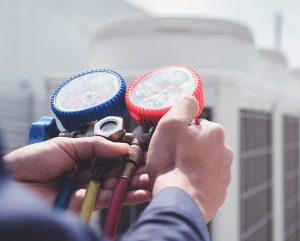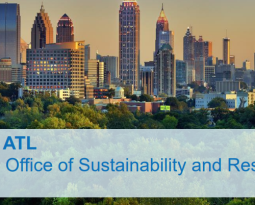U.S. Ratifies Global Treaty Curbing Climate Super-pollutants
 On September 21, 2022, the Senate ratified a global treaty that would sharply limit the emissions of super-pollutants that frequently leak from air conditioners and other types of refrigeration. With a final vote tally of 69 – 27, it was a rare moment of bipartisanship.
On September 21, 2022, the Senate ratified a global treaty that would sharply limit the emissions of super-pollutants that frequently leak from air conditioners and other types of refrigeration. With a final vote tally of 69 – 27, it was a rare moment of bipartisanship.
The treaty is known as the Kigali Amendment to the 1987 Montreal Protocol, and compels countries to phase out the use of the potent hydrofluorocarbons, or HFCs, which are hundreds to thousands of times as powerful as carbon dioxide in speeding up climate change. The earlier Montreal Protocol clamped down on the production of ozone-depleting substances. With the vote for ratification, the United States became the 137th country to ratify the amendment, encouraging the remaining nations to follow suit.
The treaty, which had to win support of at least two-thirds of the Senate, brought together an unusual coalition of supporters including the U.S. Chamber of Commerce and the National Association of Manufacturers as well as the Natural Resources Defense Council. With businesses supported it because it drives American exports, climate advocates championing it because it will avoid up to half a degree of global warming by the end of the century, and world leaders backing it because it ensures strong international cooperation. Ratifying the Kigali Amendment and adopting the Inflation Reduction Act was one of the strongest one-two punch against climate change any Congress has ever taken.
Sentiment supporting ratification has been growing in recent years, with Sen. John Neely Kennedy (R-La.) as the lead sponsor. Kennedy had, during the 2020 lame-duck session, passed the American Innovation and Manufacturing Act, which authorized the Environmental Protection Agency to carry out most of the regulations that would be required under ratification. The move was unusual as Kennedy’s state is home to Mexichem Fluor and Honeywell plants that make the chemicals.
Most U.S. industrial makers of air conditioning had already been pushing for the adoption of the treaty in the name of American jobs and competitiveness. With the ratification, the Senate is signaling that Kigali counts for the jobs it will create; for global competitive advantage it creates; the additional exports that will result and it counts for U.S. technology preeminence. U.S. manufacturers supply 75 percent of the world’s air-conditioning equipment and global demand is exploding.








